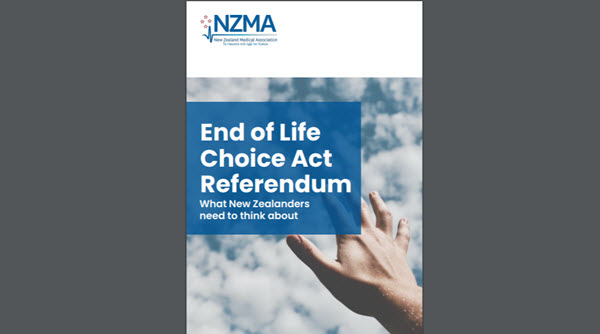NZMA – End of Life Choice Act Referendum What New Zealanders need to think about
 NZMA September 2020
NZMA September 2020
Family First Comment: An important document from the medical profession that you should read before voting in the euthanasia referendum.
Key points:
- Who will be able to end their life under the End of Life Choice Act?
- What are some of the problems with the eligibility criteria?
- Are there safeguards for vulnerable people in the Act?
- If the Act comes into force, will misuse be detected?
- What has happened in Canada after it enacted laws to enable euthanasia?
At the 2020 General Election on 17 October, New Zealanders will be asked whether they support the End of Life Choice Act 2019 coming into force. It is important that voters are well informed before making their choice. If a majority support the End of Life Choice Act coming into force, euthanasia and doctor-assisted suicide will become legal in New Zealand. This would have profound impacts on the doctor-patient relationship, risks for vulnerable people, and could result in wrongful deaths. We are concerned that there is limited awareness of some of the issues relating to this Act, ambiguity in some of the wording in the Act, and confusion about euthanasia and doctor-assisted suicide, generally. We also believe there are important lessons to be learned from other jurisdictions where euthanasia has been legalised, such as Canada.
Who is NZMA? NZMA is New Zealand’s largest medical organisation, with over 5,000 members from all areas of medicine. What is our position on the End of Life Choice Act? We do not support the End of Life Choice Act 2019 coming into force. This reflects our opposition to euthanasia and doctor-assisted suicide on the grounds they are unethical, but also our belief that the Act has serious shortcomings that put vulnerable people at risk of wrongful death. In addition, experience from Canada shows that what starts out as narrow eligibility criteria for accessing euthanasia and doctor-assisted suicide can widen over time. While we acknowledge that there is a range of opinions within the medical community, our position represents the views of a strong majority of our membership.
Key points:
- Who will be able to end their life under the End of Life Choice Act?
- What are some of the problems with the eligibility criteria?
- Are there safeguards for vulnerable people in the Act?
- If the Act comes into force, will misuse be detected?
- What has happened in Canada after it enacted laws to enable euthanasia?
READ MORE: https://www.nzma.org.nz/documents/end-of-life-choice-act-referendum-fact-sheethttps://www.nzma.org.nz/documents/end-of-life-choice-act-referendum-fact-sheet







